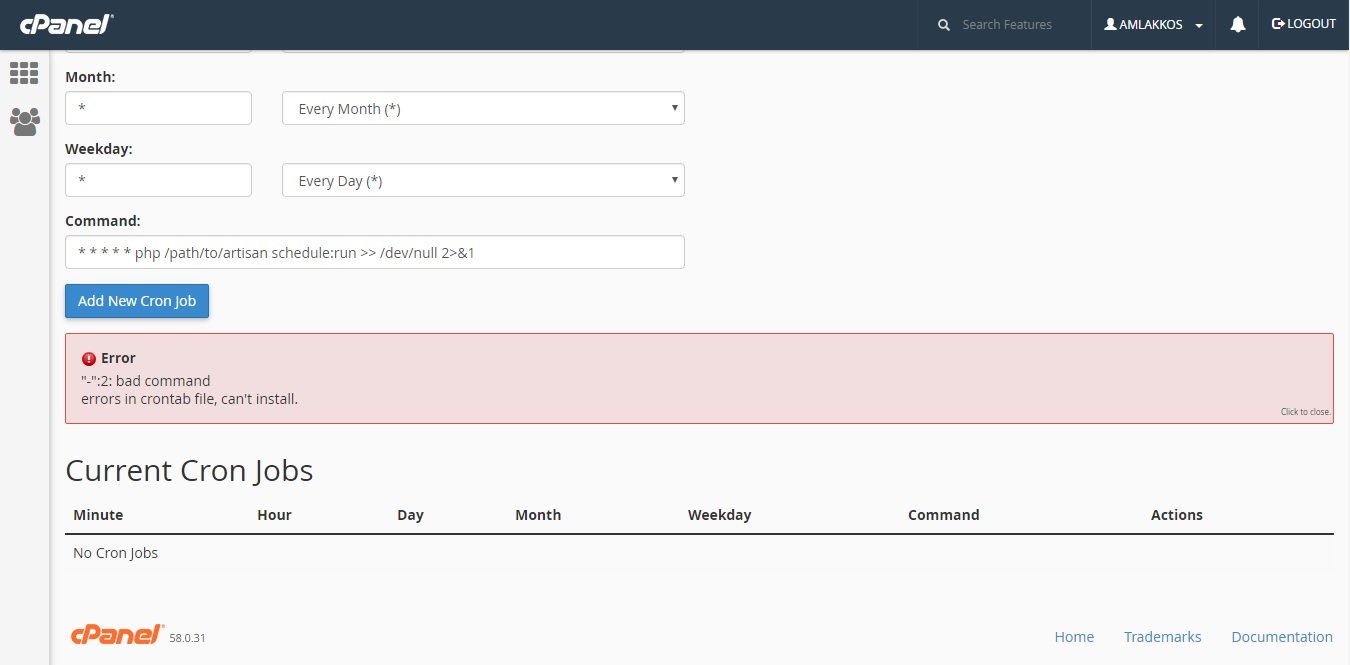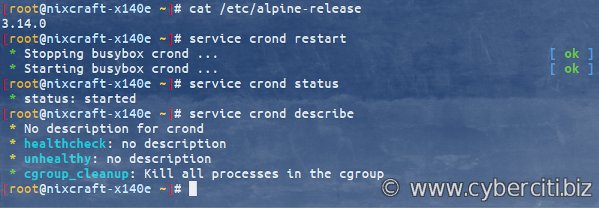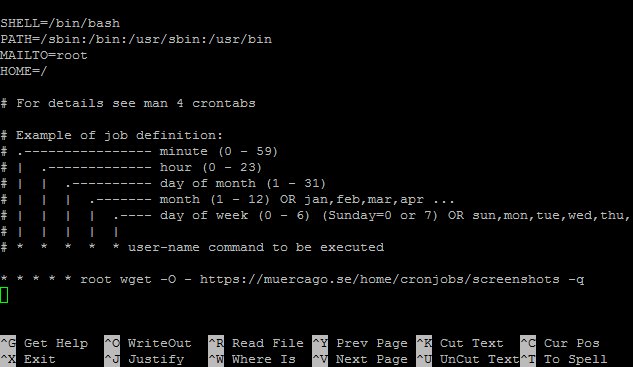Looking for a way to schedule tasks in your Node.js application? Look no further! Cron job Node.js is the answer you’ve been searching for. With Node.js’s powerful functionality and the flexibility of cron jobs, you can easily automate recurring tasks, such as sending emails, generating reports, or updating data. In this article, we will explore how to implement cron jobs in Node.js, allowing you to streamline your application and save valuable time. So, let’s dive right in and discover the wonders of cron job Node.js.
cron job nodejs
Cron jobs are an essential part of any application or website that requires automated tasks to be executed at specific intervals. In the world of Node.js, cron jobs can be easily implemented using various packages and libraries. In this article, we will explore the concept of cron jobs in Node.js and how they can be used to streamline and automate repetitive tasks.
What is a cron job?
A cron job is a time-based job scheduler in Unix-like operating systems. It allows users to schedule tasks (commands or scripts) to run periodically at fixed times, dates, or intervals. Cron jobs are especially useful for automating repetitive tasks such as backups, data synchronization, log rotation, sending emails, and more.
In the context of Node.js, cron jobs provide a way to schedule and execute JavaScript functions at specified times or intervals. They enable developers to automate various tasks within their Node.js applications, eliminating the need for manual intervention.
Installing cron job packages in Node.js
To implement cron jobs in a Node.js application, we need to install a cron job package or library. There are several popular options available, each with its own set of features and functionalities. Some of the commonly used packages for managing cron jobs in Node.js include:
- node-cron: A widely used npm package that provides a simple and intuitive interface for scheduling cron jobs in Node.js.
- node-schedule: Another popular npm package that offers a lightweight and flexible alternative for handling cron jobs in Node.js.
- node-cron-scheduler: This package is specifically designed to handle complex and intricate cron job scheduling requirements.
To install any of these packages, you can use the following npm command:
“`bash
npm install [package-name]
“`
Once the package is installed, we can start implementing cron jobs in our Node.js application.
Scheduling cron jobs in Node.js
Now that we have installed a cron job package, we can start scheduling our tasks. In this section, we will explore how to schedule different types of cron jobs using Node.js.
Simple cron job
A simple cron job is a task that needs to be executed at regular intervals. For example, sending a daily email newsletter or fetching data from an API every hour.
Let’s see an example of how to schedule a simple cron job using the node-cron package:
“`javascript
const cron = require(‘node-cron’);
cron.schedule(‘* * * * *’, () => {
console.log(‘Running a task every minute’);
});
“`
In the above code, we import the `node-cron` module and use the `schedule` method to define the cron job. The cron expression `’* * * * *’` specifies that the task should run every minute. Inside the callback function, we log a message indicating that the task is being executed.
Cron job with specific time
Sometimes, we may need to schedule a task to run at a specific time of the day. For example, generating a daily report at 9:00 AM or triggering a reminder at 5:30 PM.
Here’s an example of how to schedule a cron job with a specific time using the node-cron package:
“`javascript
const cron = require(‘node-cron’);
cron.schedule(‘0 9 * * *’, () => {
console.log(‘Running a task at 9:00 AM’);
});
“`
In the above code, the cron expression `’0 9 * * *’` instructs the cron job to run at 9:00 AM every day. You can modify the expression to specify different times or dates according to your requirements.
Cron job with intervals
In some cases, we may need to execute a task at regular intervals instead of fixed times. For example, updating real-time data every 5 seconds or cleaning up temporary files every hour.
Here’s an example of how to schedule a cron job with intervals using the node-cron package:
“`javascript
const cron = require(‘node-cron’);
cron.schedule(‘*/5 * * * * *’, () => {
console.log(‘Running a task every 5 seconds’);
});
“`
In the above code, the cron expression `’*/5 * * * * *’` specifies that the task should run every 5 seconds. You can adjust the interval as per your requirements.
Error handling and logging
When working with cron jobs, it’s crucial to handle errors and log relevant information for debugging purposes. Most cron job packages provide mechanisms to handle errors and log messages during task execution.
Here’s an example of how to handle errors and log messages using the node-cron package:
“`javascript
const cron = require(‘node-cron’);
cron.schedule(‘* * * * *’, () => {
try {
// Task logic goes here
console.log(‘Running a task every minute’);
} catch (error) {
console.error(‘An error occurred:’, error.message);
}
});
“`
In the above code, we wrap the task logic inside a `try-catch` block to handle any potential errors. If an error is caught, we log an error message using `console.error()`. This ensures that we can track and debug any issues that may arise during cron job execution.
Managing cron jobs dynamically
In certain scenarios, we may need to manage cron jobs dynamically, such as adding or removing tasks at runtime. Some cron job packages offer methods and APIs to interact with scheduled jobs dynamically.
Let’s take a look at an example using the node-cron package:
“`javascript
const cron = require(‘node-cron’);
const scheduledTask = cron.schedule(‘* * * * *’, () => {
console.log(‘Running a task every minute’);
});
// Pause the cron job
scheduledTask.pause();
// Resume the cron job
scheduledTask.resume();
// Stop the cron job
scheduledTask.stop();
“`
In the above code, we assign the scheduled task to a variable (`scheduledTask`) during the scheduling process. This allows us to access various methods such as `pause()`, `resume()`, and `stop()` to manage the cron job dynamically. You can invoke these methods based on specific conditions or requirements in your application.
In this article, we explored the world of cron jobs in Node.js and how they can be implemented using various packages. We learned about scheduling simple and complex cron jobs, handling errors, and managing cron jobs dynamically. Cron jobs are incredibly powerful tools for automating tasks in a Node.js application, saving time and effort for developers. By harnessing the capabilities of cron jobs, you can streamline your workflow and ensure that repetitive tasks are executed with precision and efficiency. Remember to choose the right cron job package that suits your requirements, and happy scheduling!
How to Build a Cron Job Task Scheduler Using Node Cron in Node.js Full Tutorial
Frequently Asked Questions
What is a cron job in Node.js?
A cron job in Node.js is a scheduled task that runs at predetermined intervals. It allows you to automate repetitive tasks such as sending emails, generating reports, or updating data. By defining the schedule and the code to be executed, you can ensure that these tasks are performed regularly without manual intervention.
How can I create a cron job in Node.js?
To create a cron job in Node.js, you can use a library like “node-cron” or “node-schedule”. These libraries provide a simple and intuitive way to define cron schedules and execute code at the specified intervals. You can install them using npm and then use their APIs to create and manage your cron jobs.
Can I pass parameters to a cron job in Node.js?
Yes, you can pass parameters to a cron job in Node.js. When defining your cron job, you can include any required parameters as part of the code that will be executed. You can either hardcode the values or pass them dynamically based on your requirements. Make sure to handle these parameters properly within your code.
How do I handle errors in a cron job in Node.js?
To handle errors in a cron job in Node.js, you can use try-catch blocks to wrap your code and catch any exceptions that occur during execution. You can log the errors, send notifications, or take any other appropriate action based on the specific error. Proper error handling ensures that your cron job continues to run smoothly.
Can I schedule a cron job to run at specific times of the day?
Yes, you can schedule a cron job to run at specific times of the day in Node.js. By setting the minutes, hours, and optionally the days of the month and the day of the week, you can define a precise schedule for your cron job. This flexibility allows you to execute tasks at specific times, such as midnight, early morning, or during business hours.
Is it possible to cancel or modify a scheduled cron job in Node.js?
Yes, it is possible to cancel or modify a scheduled cron job in Node.js. Most cron job libraries provide methods to manage existing jobs dynamically. You can cancel a job by its identifier or update its schedule if you need to change the execution time or frequency. These features offer flexibility in managing your cron jobs as per your evolving requirements.
Final Thoughts
In conclusion, a cron job in Node.js is a powerful tool to automate repetitive tasks and schedule jobs at specific intervals. It allows developers to perform various operations such as cleaning up database entries, sending emails, or generating reports. By utilizing the simplicity and flexibility of Node.js, developers can easily create and manage cron jobs to streamline their workflows. With its active voice and natural language, cron job Node.js provides an efficient solution for automating tasks and improving productivity.




